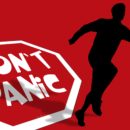Test Anxiety Treatment & Diagnostic Considerations
When considering treatment for test-taking anxiety, make sure that you have a comprehensive diagnostic assessment to rule out other possible causes of your symptoms. Not all cases of test anxiety are alike, and sometimes symptoms of test anxiety actually reflect a separate, underlying condition. If you’re located in South Florida (Palm Beach Gardens, Jupiter, West Palm Beach, Fort Lauderdale, Boca Raton, Boynton Beach, & Miami), I would be happy to meet with you to conduct an assessment of your symptoms and provide treatment (if appropriate). Regardless of where you live, here is a short list of factors to consider when getting help for your symptoms: Test Anxiety Diagnosis & Treatment Strategies 1. Don’t assume that just because you have test anxiety that the problem is only test anxiety. Test performance issues may also have an independent panic component. If...
Read MoreTest Anxiety & Test-taking Anxiety Myths
Although most of us (at one point or another) have experienced significant fear, uncertainty, or dread about an upcoming examination or evaluation, oftentimes these milestones pass without incident. We get scared, our hearts race, and we ultimately live to fight another day. For millions of Americans, however, test anxiety poses potentially serious, life-altering problems that can indelibly change the trajectory of one’s career, permanently limit one’s options, and ravage one’s self-confidence. Let’s dispel some common myths about test-taking anxiety. These myths are derived from actual (mis)statements people have made to me in my South Florida (Palm Beach Gardens, Jupiter, West Palm Beach, Fort Lauderdale, Boca Raton, Boynton Beach, & Miami) psychological practice. Test Anxiety Myths Myth #1. Test anxiety is only a problem for students (i.e., once you’re out of school, test anxiety is irrelevant). FALSE. Although test anxiety...
Read MorePure-O OCD (Pure Obsessional OCD): Hidden Rituals
“Pure-O” OCD, or Pure Obsessional OCD, is a relatively less common form of OCD that seemingly differs from classic presentations of the illness. What distinguishes Pure Obsessional OCD from classic OCD is that in Pure-O OCD, symptoms are predominantly obsessive (rather than compulsive) in nature. Although individuals with Pure-O OCD frequently experience intense and distressing obsessions, they typically report few (if any) overt compulsive behaviors. However, in almost all cases, pure obsessionals do engage in a variety of rituals. These rituals just manifest as mental compulsions rather than behavioral compulsions. Unfortunately, most psychologists haven’t been trained in how to ask the types of questions that are necessary to identify these “hidden rituals.” As a consequence, these rituals often go undetected. Because effective treatment requires consistent response prevention, a failure to recognize and resist mental compulsions makes true exposure and response prevention (ERP) impossible. Treatment...
Read MoreOCD perfectionism & social anxiety treatment: Tweet your way to greater health
Looking for ways to overcome social anxiety or OCD-related perfectionism? At the end of this post, you’ll find some strategies I use to help individuals in South Florida (Palm Beach, Fort Lauderdale, Boca Raton, Boynton Beach, & Miami) overcome their anxiety. These exercises are examples of “Intentional Mistake Practice“, a CBT-based technique that can be used to challenge some of the problematic perfectionistic beliefs that are central to social anxiety and OCD. First, though, what do social anxiety and OCD-related perfectionism have in common? Although on the surface, these anxiety disorders are quite different, individuals with social phobia and OCD often share many perfectionistic beliefs about the world. Social anxiety (or “social phobia”) is characterized by excessive worry about being perceived negatively by others. Individuals with social phobia often have perfectionistic expectations about their own behavior and question their social competence....
Read MoreAlthough it might feel like you’re dying, you’re not. That’s just what the panic wants you to think.
Disclaimer: Because panic attacks can mimic the symptoms of several serious medical conditions, it’s important that you talk with your doctor before beginning any panic treatment program. Never begin panic treatment without first obtaining medical clearance from your physician. Panic attacks feel horrible. If you are one of the 5% of Americans suffering from recurrent panic attacks due to panic disorder, you are likely well-acquainted with the nasty constellation of physical sensations that occur during a full-blown panic attack. Panic attack symptoms are frightening and often include accelerated heart rate, sweating, trembling, choking or smothering sensations, chest pain, nausea or GI problems, dizziness, lightheadedness, feelings of unreality or detachment from one’s body, numbness or tingling sensations, chills, and hot flashes (Barlowe & Craske, 2006). These symptoms reflect activation of the body’s fight-or-flight system, which has been implicated in panic. Physical symptoms frequently co-occur...
Read More







